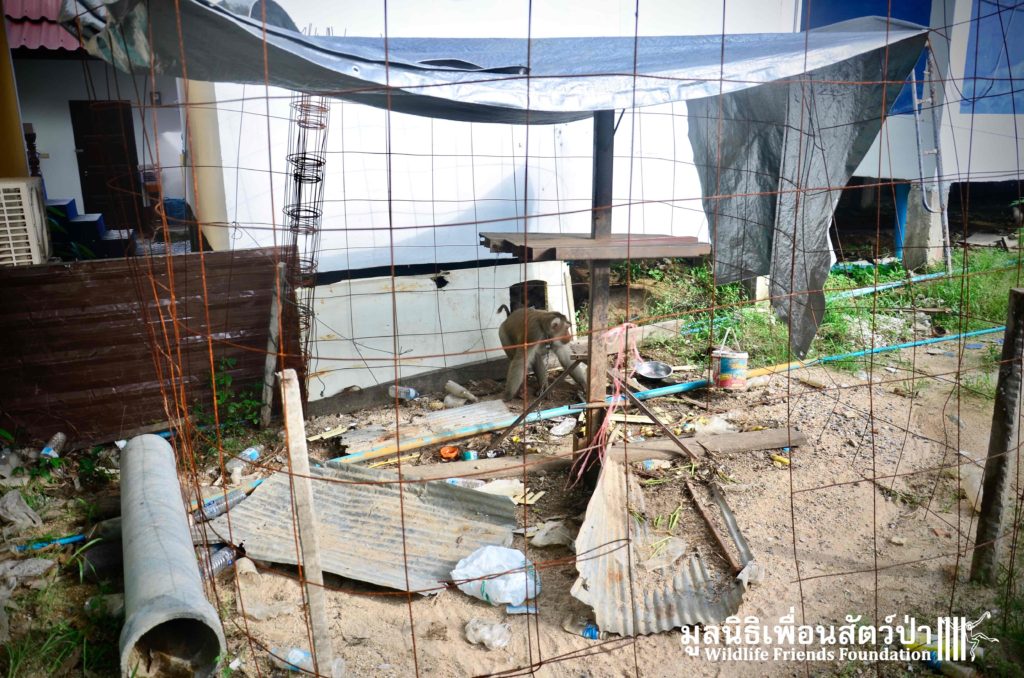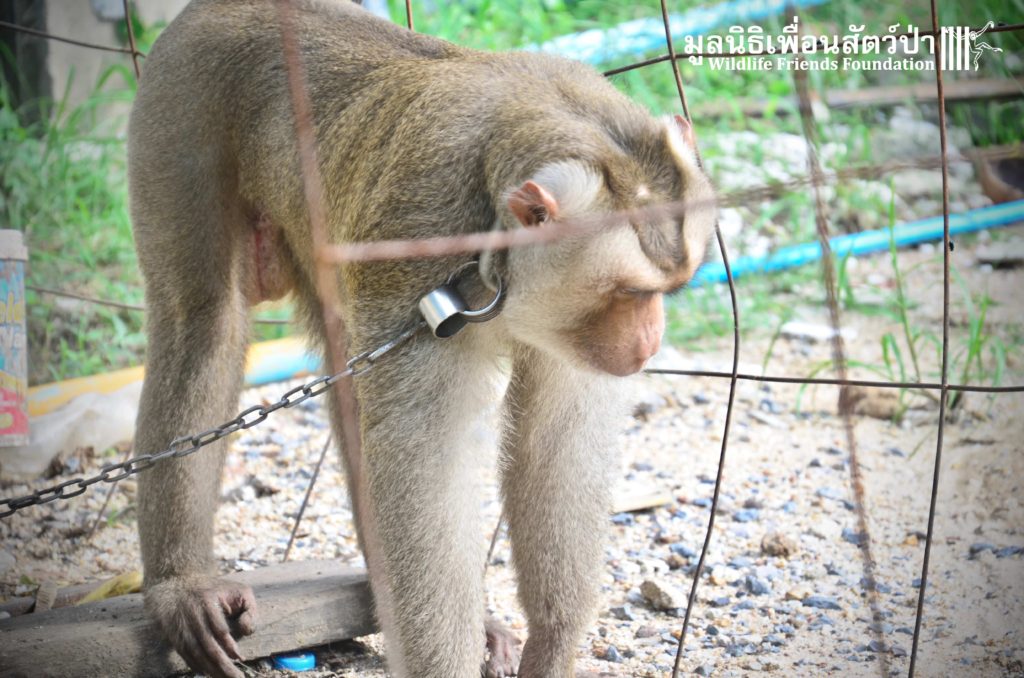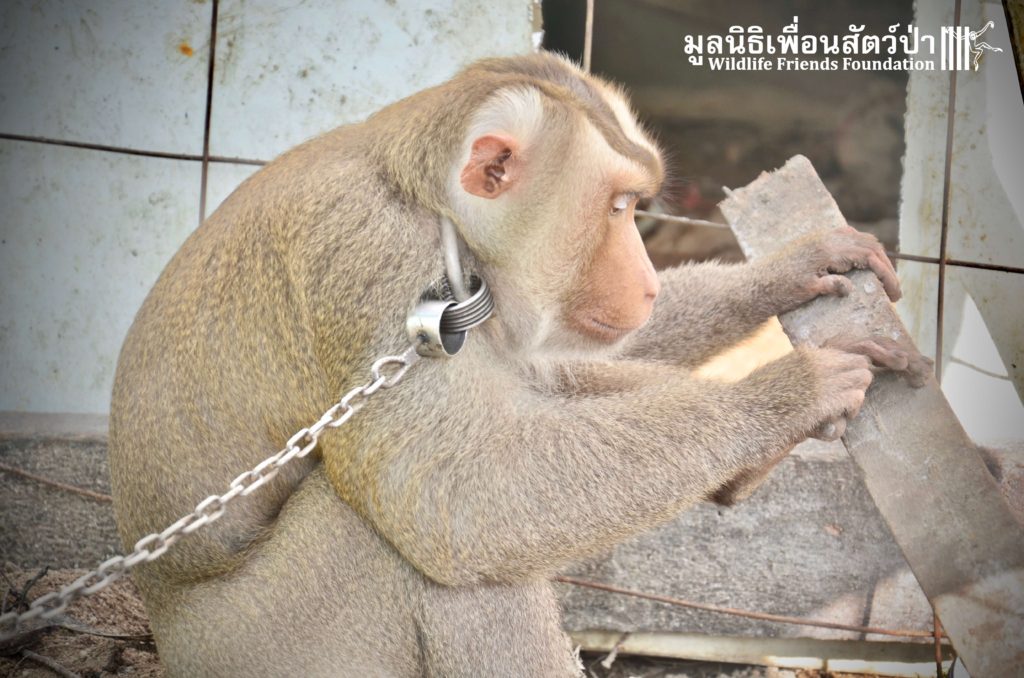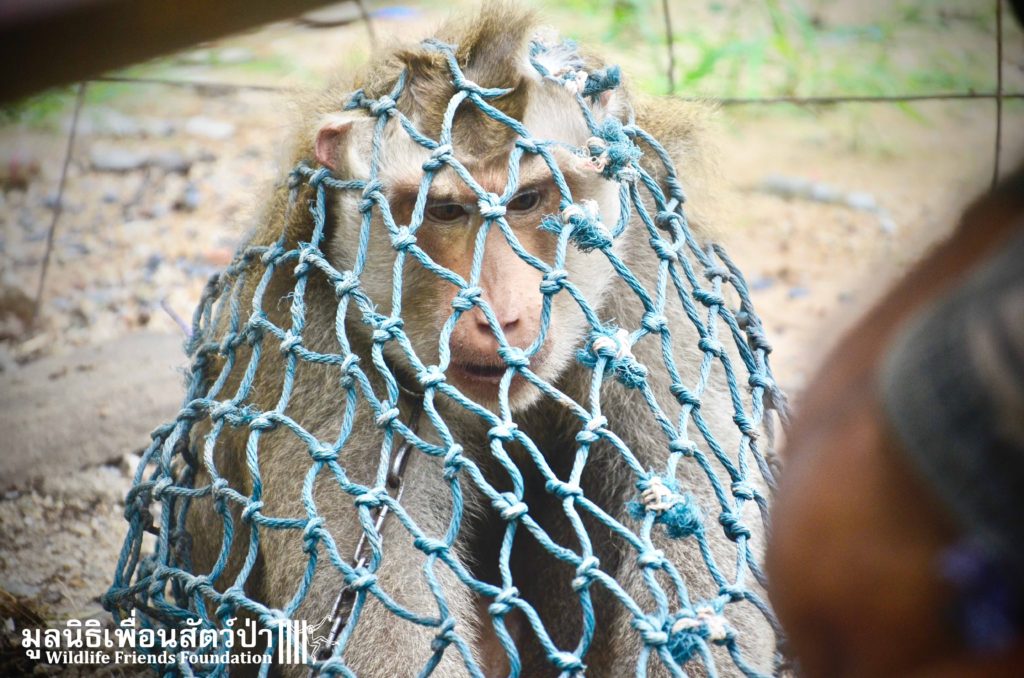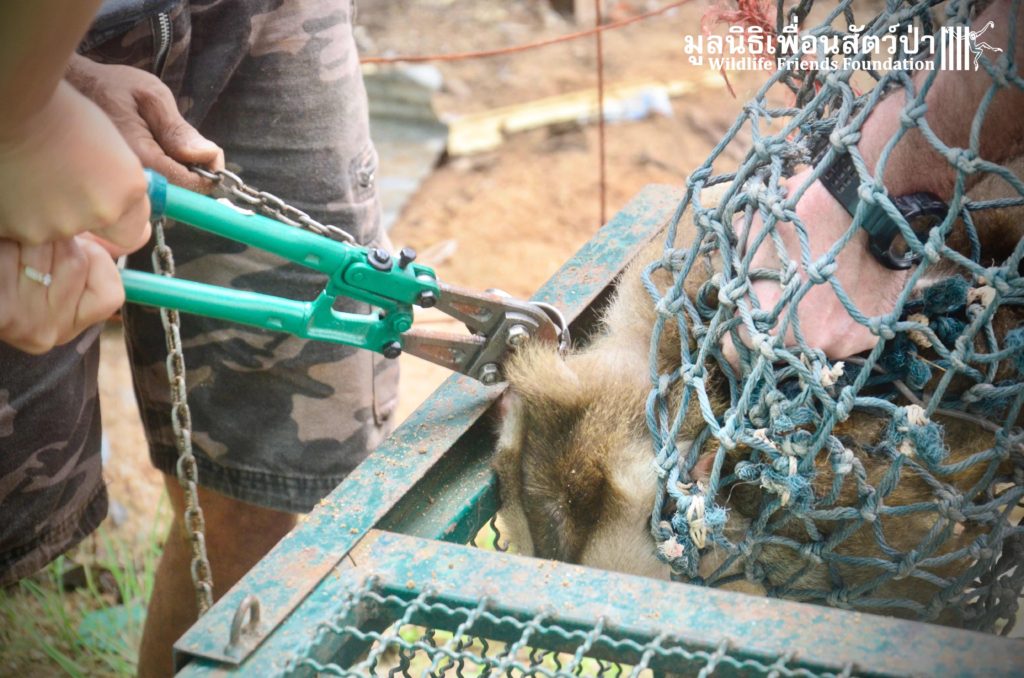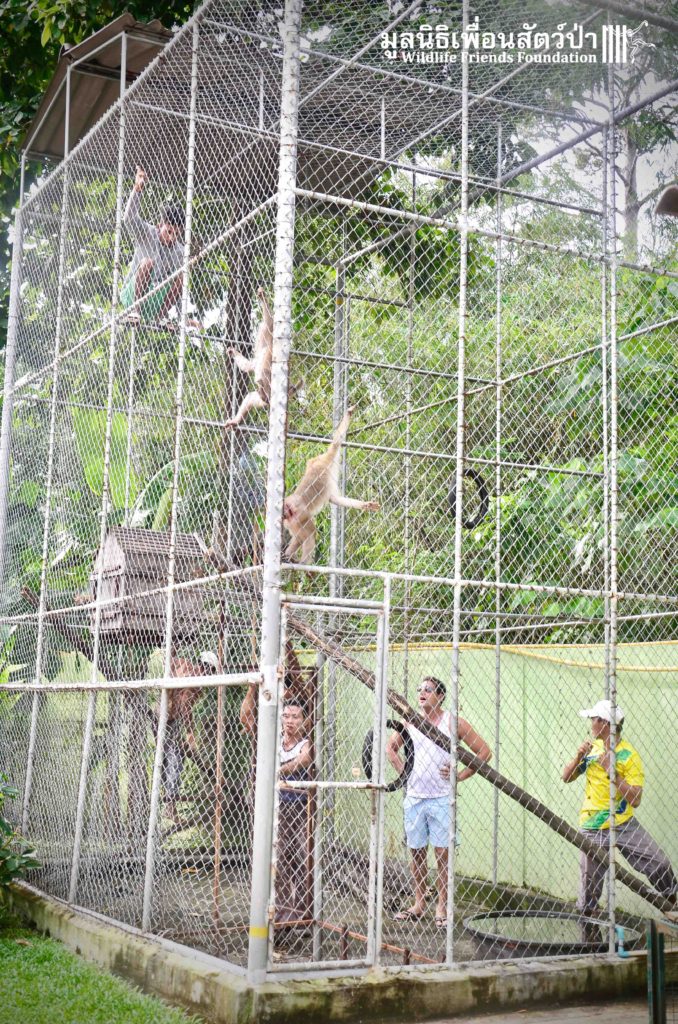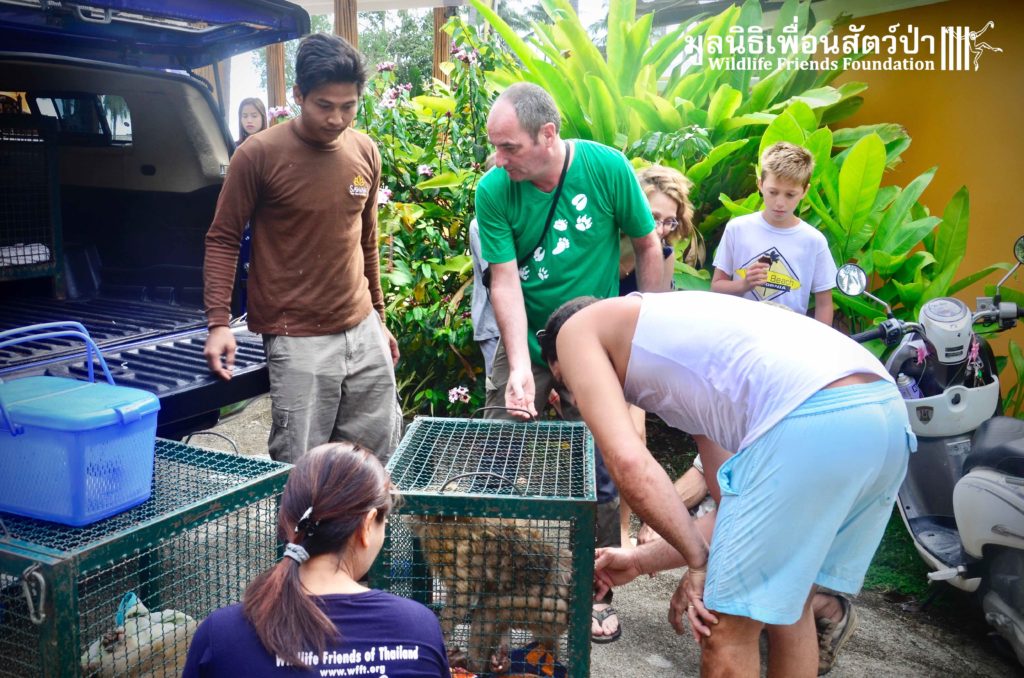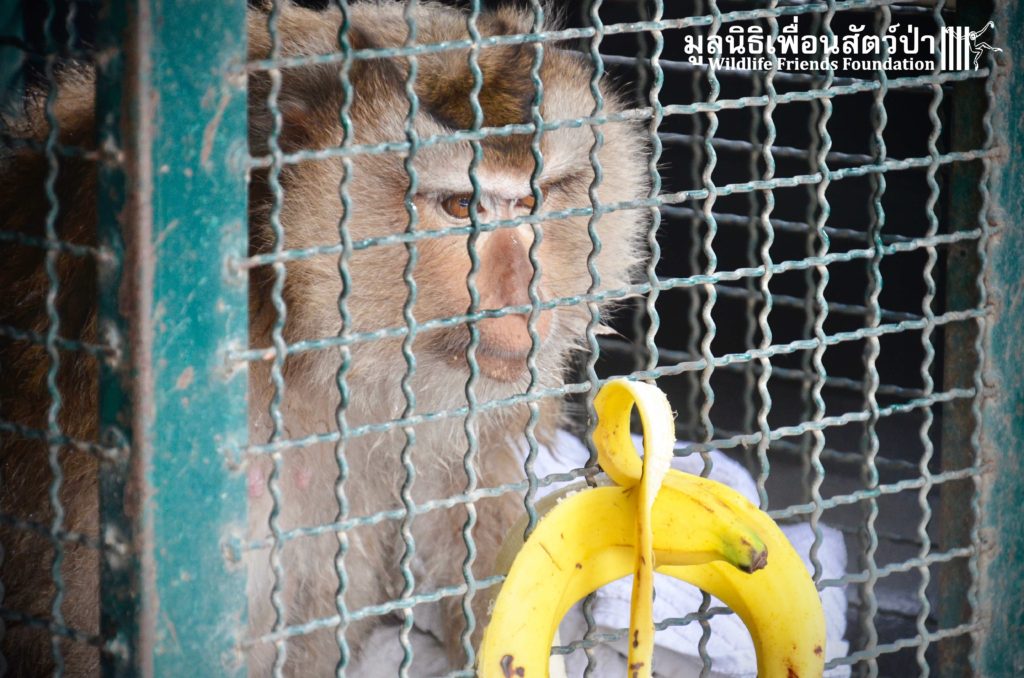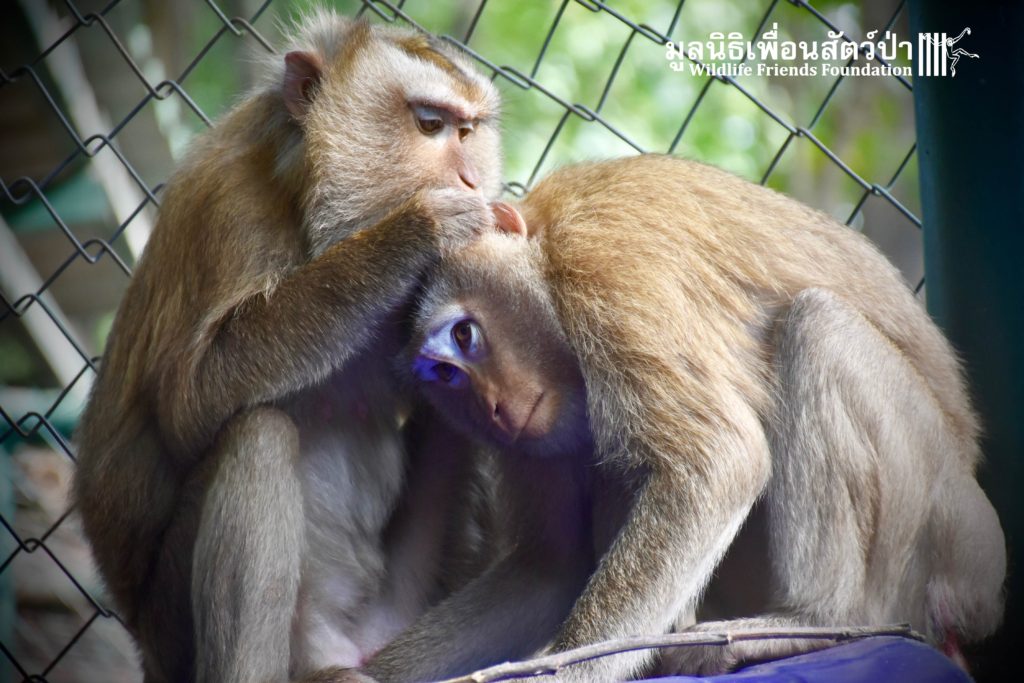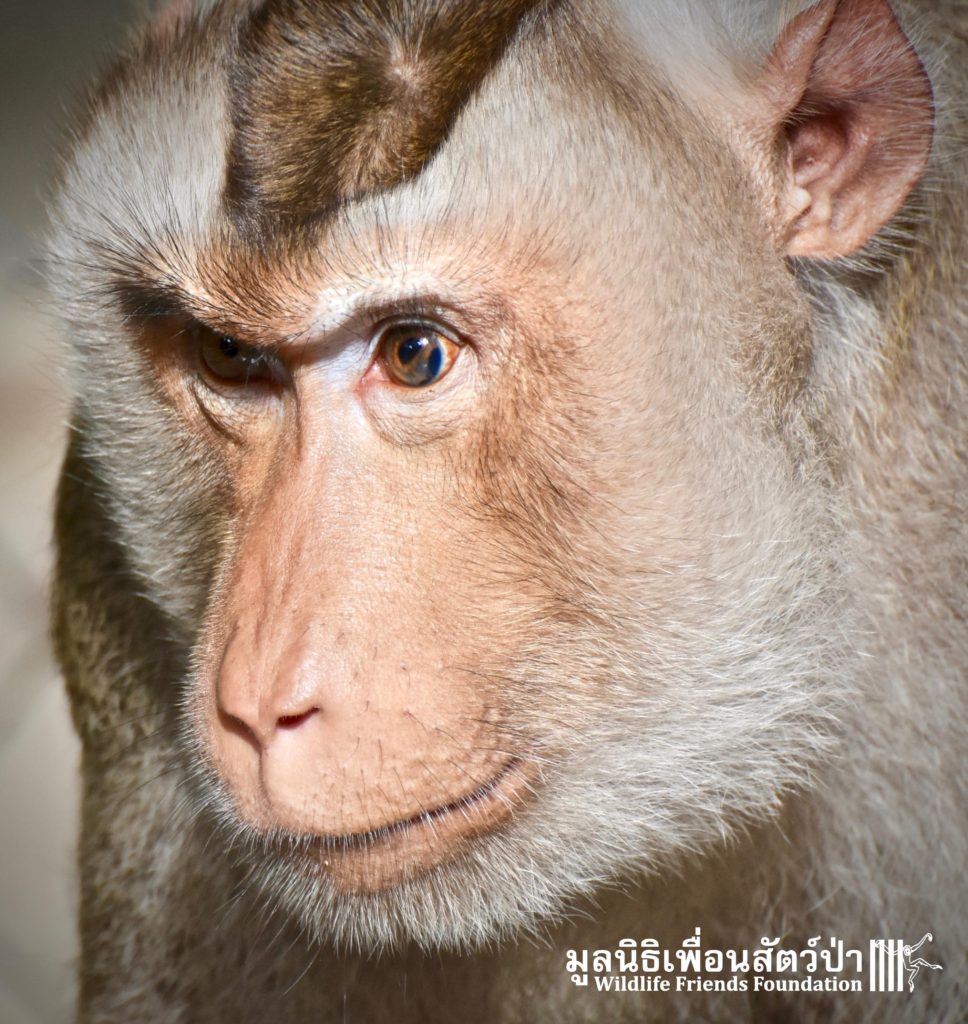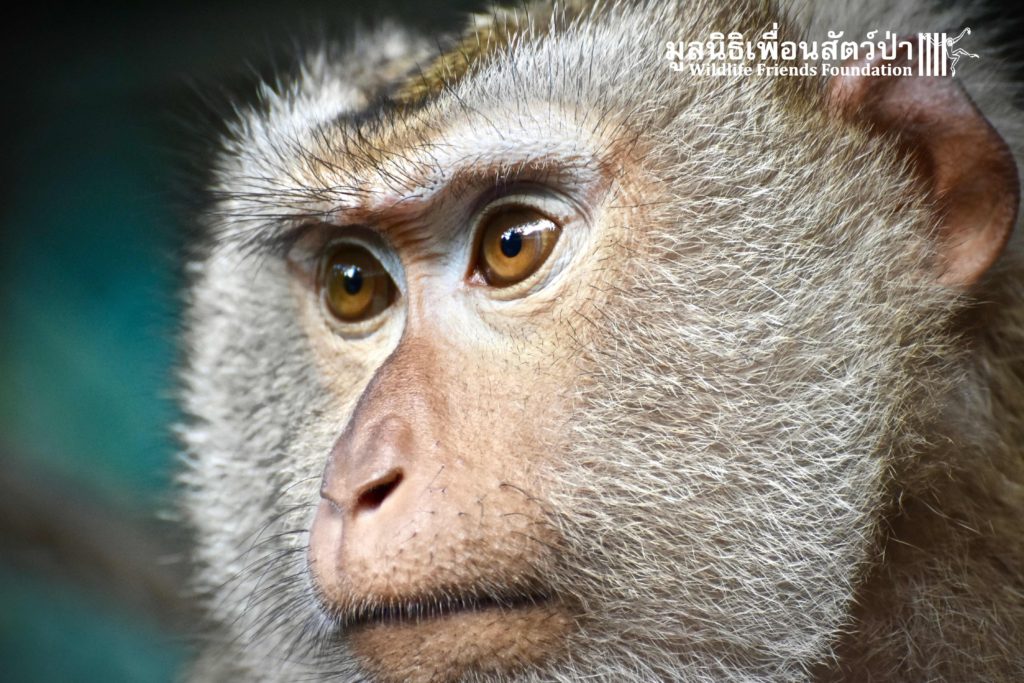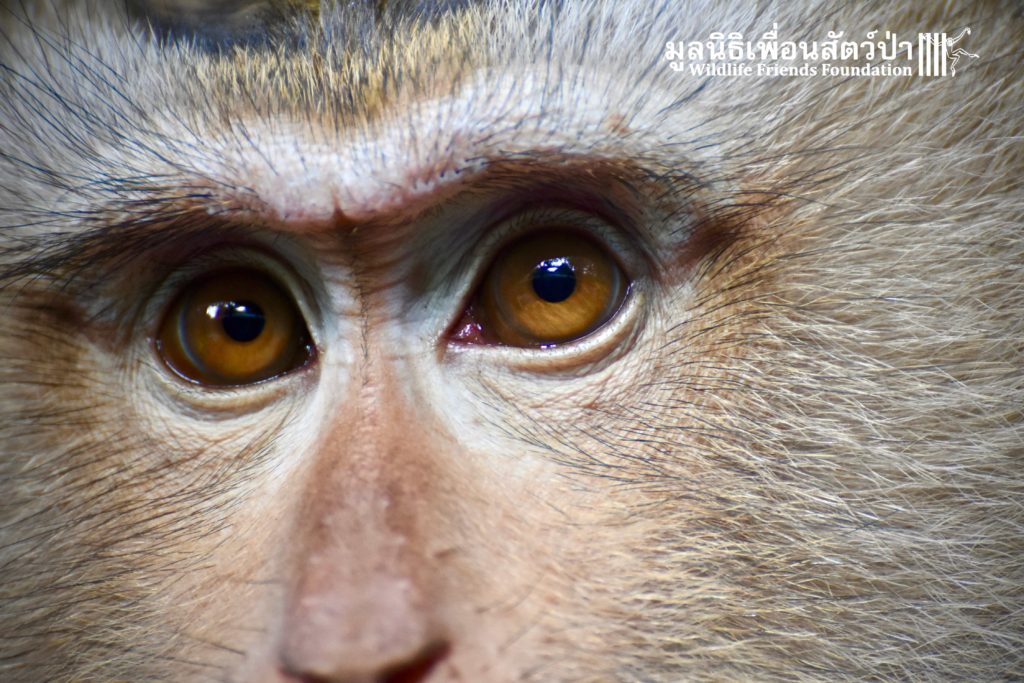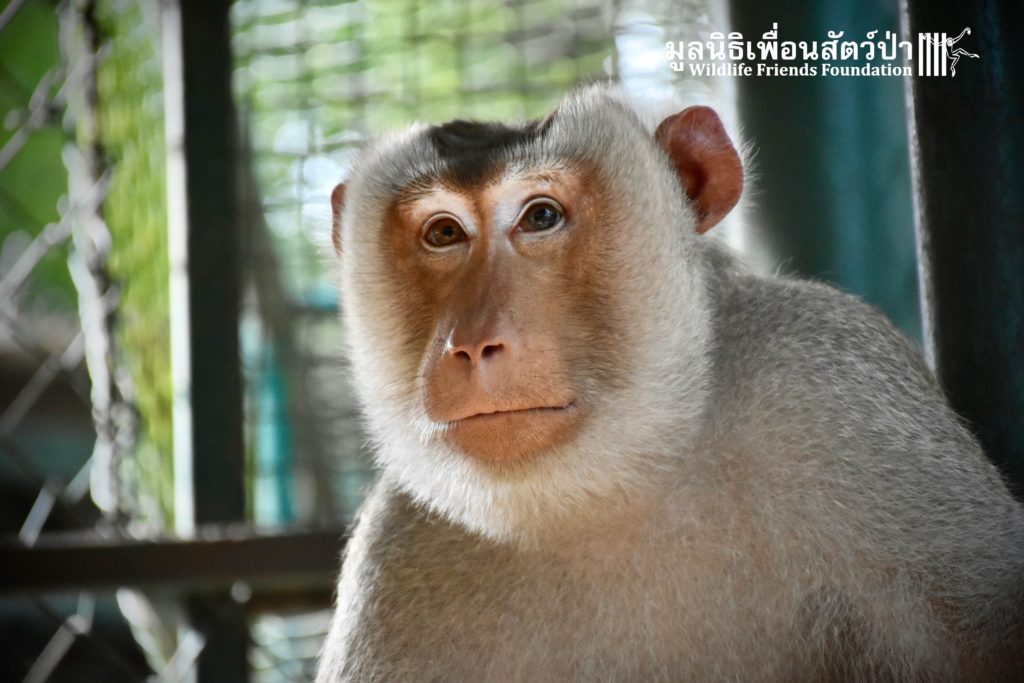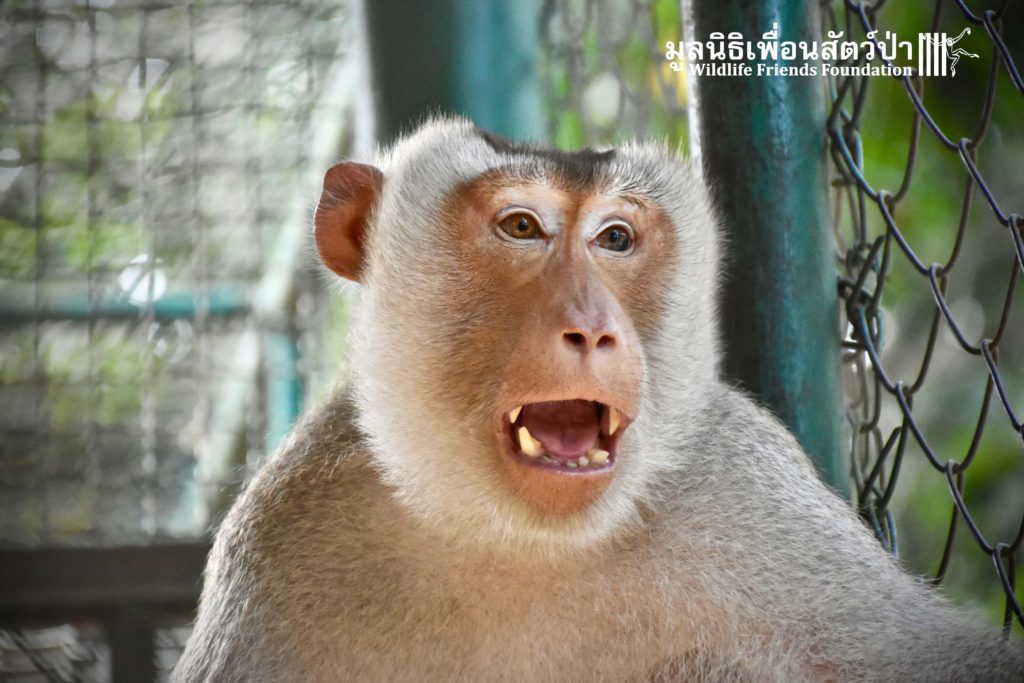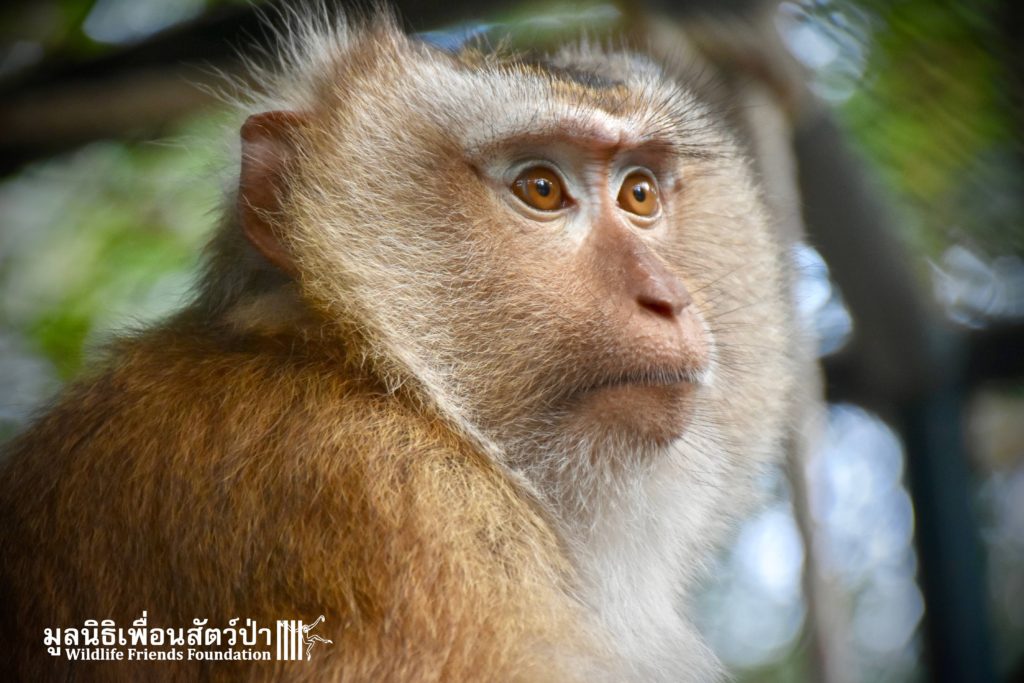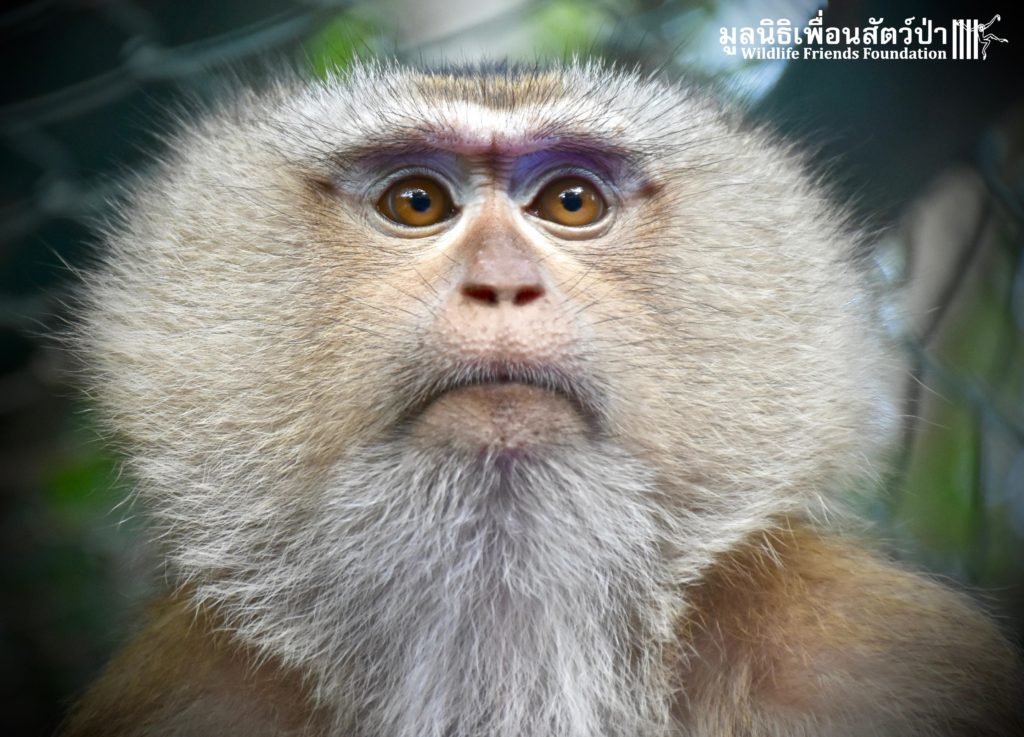Our team rescued a wild long-tailed macaque who had been struck by a car. He has severe injuries but our vets are doing everything possible
Rescued — 3 Monkeys in One day
Last week the WFFT Wildlife Rescue Team headed out on a long rescue mission to Koh Samui, an island in Southern Thailand. The animals in need of rescue were 3 adult Northern pig-tailed macaques (Macaca leonina), 1 male and 2 females. The male named Khai, was being used as a coconut monkey and had escaped. He was then captured and chained up, he then spent the next 4 years on this chain until we were made aware of his plight. The 2 females, Maya and Nina, had been ‘rescued’ by a concerned ex-pat in 2010 after being found as very young in infants for sale at the side of a road. They then spent the next 7 years being cared for by these people in an enclosure in their garden. The people caring for them had to leave Thailand so called us to help.
The IUCN Red List of Threatened Species lists the Northern pig-tailed macaque as Vulnerable (VU). Their population has declined by over 30% over the last three generations across its entire range due to several threats, and this decline is predicted to continue at the same rate or higher in the next three generations. Habitat disturbances that affect this species’ survival include: selective logging; timber and firewood collection for making charcoal; building roads, dams, power lines; and deliberately setting fires. These animals are hunted and traded for food, sport and traditional “medicine”, and the live animals as pets. In Thailand, the males of this species are exploited for picking coconuts by the industry. Sometimes, a well-trained macaque is sold for 1,000USD. They are also in demand by resorts and other tourist attractions for inhumane circus style shows.
All 3 monkeys are currently adjusting to their new lifes at the WFFT Wildlife Rescue Centre. Thank you Phil and Dara for helping with the rescue of these monkeys. We are hopeful that in the near future they will be able to be introduced into one of our large open top fields with other members of their own species. We will keep you posted on their progress.

